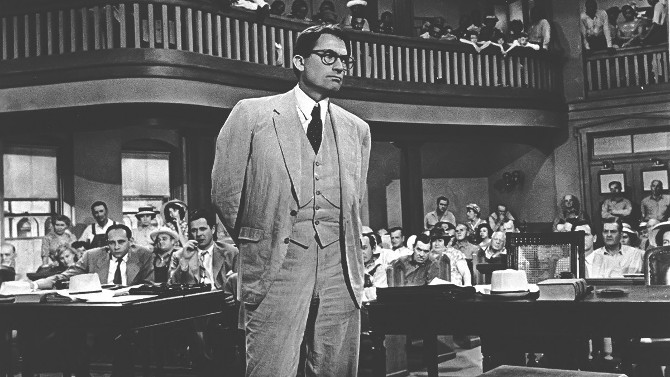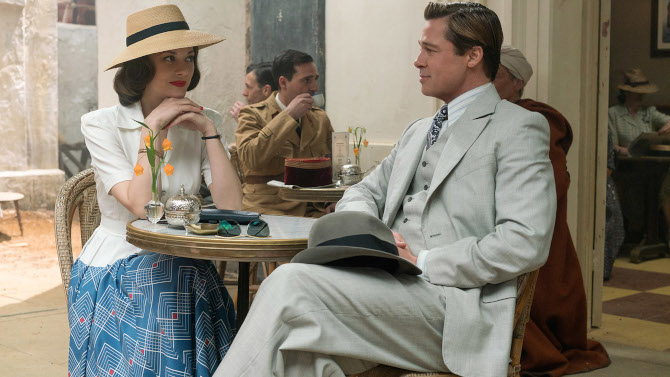
Déjà vu Dalliance
Channeling the mesmeric movies churned out by the studio system back in the 1930s and 40s, Allied (2016), directed by Robert Zemeckis, channels the likes of Morocco, Casablanca, Across the Pacific, Gilda, To Have and Have Not, and numerous others – attempting to find a spark from the classic themes of melodrama, romance, suspense and the epic nature of the annals of the cinematic past, with quite successful results. Set the year Casablanca and Across the Pacific were released – 1942, the story in fact starts in Morocco, with recently parachuted in Canadian spy Max Vatan (Brad Pitt) meeting up with another undercover agent, Marianne Beauséjour (Marion Cotillard), who will be pretending to be his wife.
-
Star Pick with Amanda Bearse
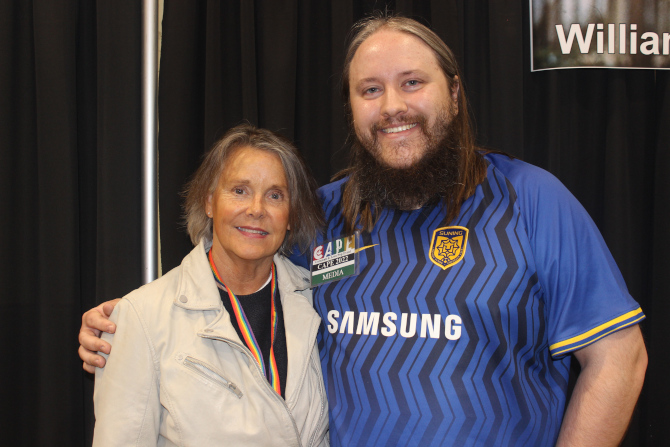 Marcy’s PlaygroundTo Kill a MockingbirdJune 18, 2023
Marcy’s PlaygroundTo Kill a MockingbirdJune 18, 2023It was an absolute pleasure to meet and interview Amanda Bearse at CAPE 2022 (Cornwall & Area Pop Event). A multi-talented actor and director, she is perhaps best remembered as troublesome neighbour Marcy in the long running television sitcom Married... with Children (she appeared in an impressive 259 episodes, while she also sat in the directorial chair 31times). Yet, two years earlier, she appeared in what must have seemed at the time to be a horror quickie that would come and go... except the annals of cinema history were not done with Fright Night – it becoming a true cult classic of the 1980s that is still growing its viewing audience today. After wrapping Married, she decided to step behind the camera more often than not, directing numerous television series, including The Jamie Foxx Show, Dharma & Greg, Sabrina the Teenage Witch, Reba, Mad TV, to name but a few. For the first time in awhile, she is back in front of the camera with last year’s Bros and the upcoming comedy Tapawingo.
-
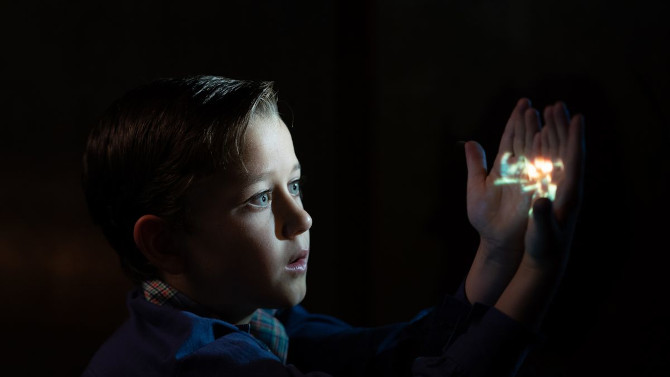
Spiels, Fabels, and Other Stories
The FabelmansFebruary 23, 2023Like a reflective revery, Steven Spielberg looks back at his own life with the 2022 Academy Award nominated (seven selections, including Best Picture) feature film The Fabelmans. Co-written (along with Tony Kushner) and directed by Spielberg, he creates a throwback style picture, something along the lines of the moving I Remember Mama (1948)... a sweeping retrospective of love and death, bullying and forgiveness, familial unity and division, over several decades. The Spielberg name becomes Fabelman, with Sammy replacing the name Steven (Gabriel LaBelle; as a younger child, Mateo Zoryan). We open with his parents, the weak tech genius Burt (Paul Dano) and artsy centre of attention Mitzi (Michelle Williams – in an Oscar nominated role) taking him to his first movie – 1952's The Greatest Show on Earth.
-
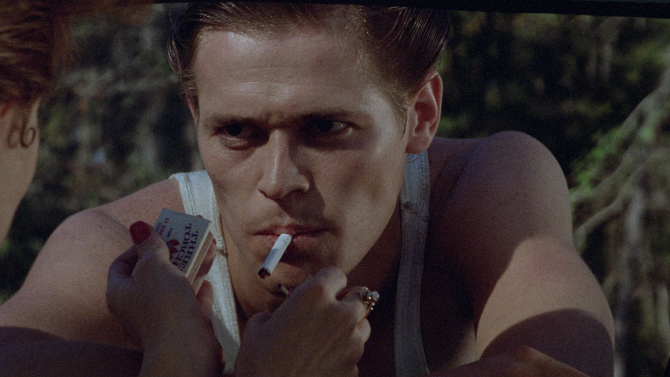
Take the World in a Loveless Embrace
The LovelessJune 7, 2022Back in the late 1970s, then first time co-writer/co-director Kathryn Bigelow, along with Monty Montgomery, were fortunate enough to have spotted one Willem Dafoe on the stage – a member of the Wooster Group experimental theater company. Asking him to be a part of their movie, it would also become the actor’s first credited role. That film would eventually be called The Loveless (1981)... prior to that, it was known as US 17 and Breakdown. Set in the 1950s and infused with a post-punk flair, the narrative follows Vance (Dafoe), an enigmatic nihilist with an intoxicating allure. A quiet biker wearing black leather and equally as dark Brylcreem’d back hair, he oozes an indifferent quality of danger and sexuality. Living on the edge of life (or perhaps more accurately, a knife), he’s the type of conundrum that stops to help a lady with a flat tire, only to nab a controversial kiss and then take the money from her wallet for payment as he departs... leaving her all shook up in more ways than one.
-
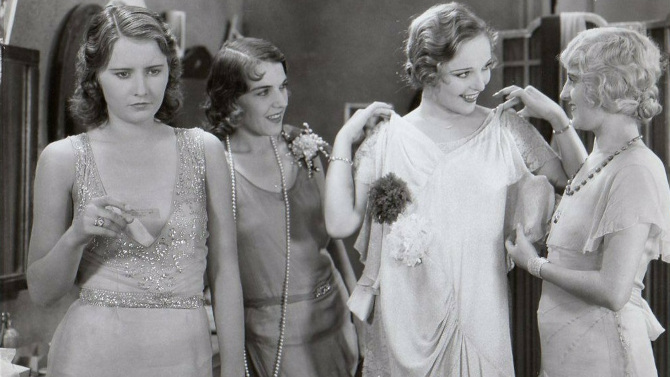
Brother, Can You Spare a Dime?
Ten Cents a DanceMarch 9, 2022It’s intriguing to think how time tends to shrink an actors or directors filmography. . . the passing years seeming to erase movies (be them lesser, unrelatable to present viewpoints, simply lost to time, or so on). For instance, Lionel Barrymore – once one of the biggest stars in Hollywood, a two time Academy Award nominee (and one time winner), is mostly known for his cantankerous and utterly realistic portrayal of villainy as Mr. Potter in the Frank Capra Christmas classic It’s a Wonderful Life. In actuality, he has an impressive 217 acting credits to his name, while many may not even know that he was also a director. . . today’s film his fourteenth and final credited effort – Ten Cents a Dance (1931). A title pulled from a popular 1930 song of the same name (written by Richard Rodgers, lyrics by Lorenz Hart, originally sung by Ruth Etting), the playful, jazzy romp sways over both the opening credits as well as when the screen turns black at the end of the film. A tune lamenting the work of a taxi dancer, that is, a girl hired to shimmy with libidinous men at a happening nightclub for ten cents a dance, poor Barbara O’Neill (Barbara Stanwyck) is our titular character.
-
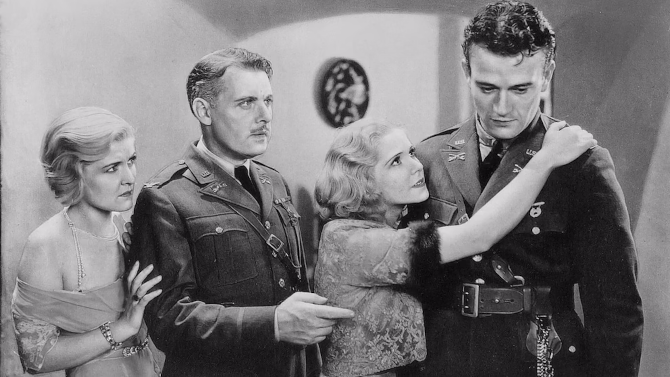
Made Marion
ArizonaDecember 17, 2021Hell hath no fury like a woman scorned – there is no doubt Pre-Code cinema thrived on this ancient idiom. A prime example is George B. Seitz’s 1931 romance driven drama, Arizona (based on a famous play of the time written by Augustus Thomas). Poor Evelyn Palmer (Laura La Plante) – she’s been in a very secretive romantic tryst with one of the Army’s top up and comers, Lt. Bob Denton (a very early starring role for John Wayne). Charming, debonair, and a supreme athlete (he’s the star full back in the annual Army-Navy football game... they even send him in to kick the extra point to win the game), Evelyn has spent the last two years of her life courting the catch. . . only for him to break it off after his memorable performance (saying he never planned on marrying her after all).
-
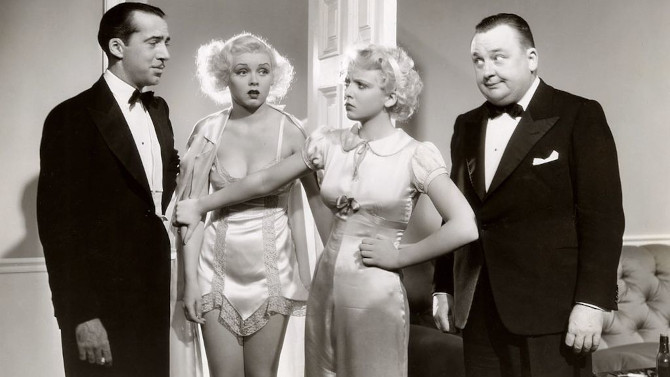
Olympic ‘Ten’sion
Search for BeautyAugust 3, 2021Opening at the 1932 Los Angeles Summer Olympics (an actual newsreel from the event), 1934's Search for Beauty, directed by Erle C. Kenton (Island of Lost Souls; The Ghost of Frankenstein), is a sharply written and unbelievably edgy drama that would not have passed code just a few short months later (once the Motion Picture Production Code, also known as the Hays Code, came into effect). A clash between immorality and a sort of athletic purity, two ex-cons, Larry Williams (Robert Armstrong) and Jean Strange (Gertrude Michael), newly released from prison, quickly come up with a new cash friendly scheme. Teaming with their money-man, Dan Healy (James Gleason), they plan on purchasing a ‘Health and Exercise’ magazine (and a ramshackle hotel that comes with it), turning it into a pre-Playboy rag magazine full of sultry stories and lurid photographs.

